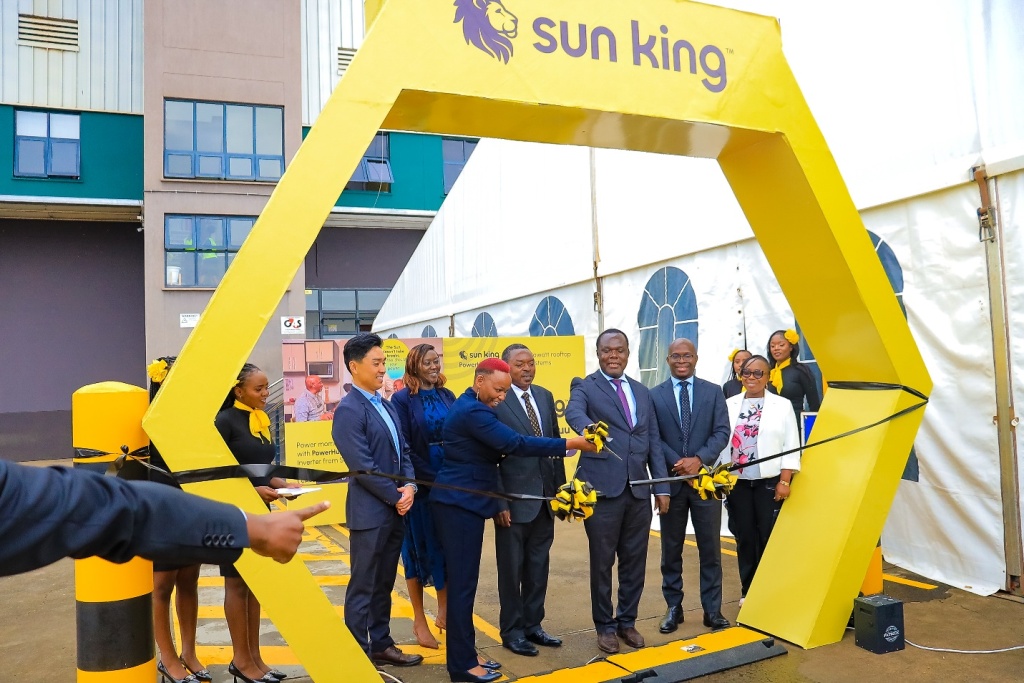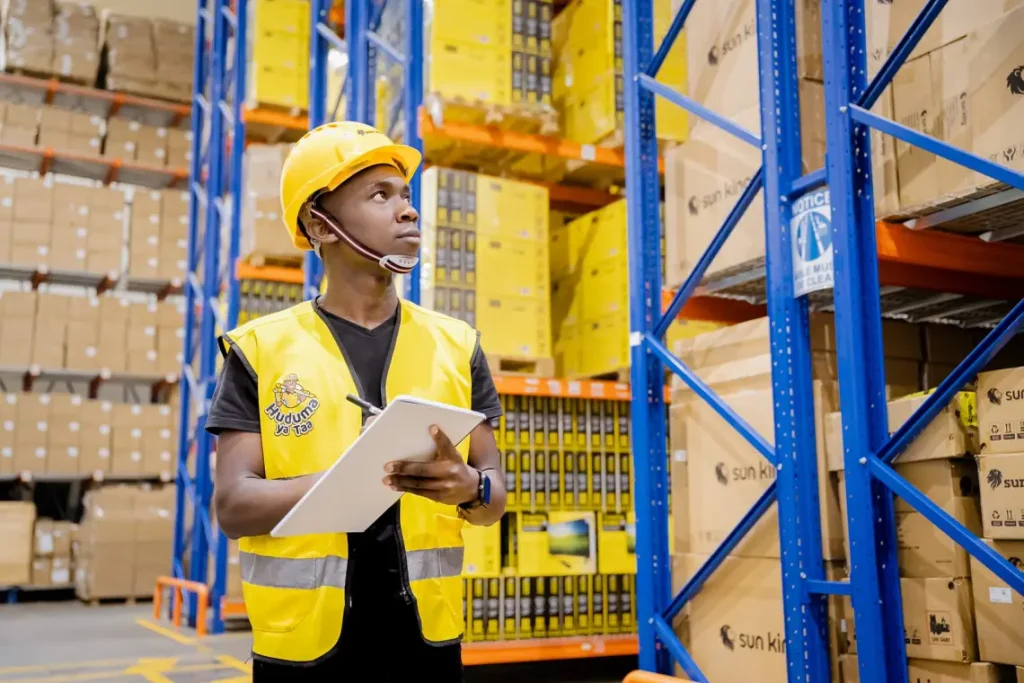Physical Address
60 Ekwema Cres, Layout 460281, Imo
Physical Address
60 Ekwema Cres, Layout 460281, Imo

Sun King has just opened its first big factory in Africa, and it’s in Kenya. This is a huge step for the company, which makes solar products to help people in places where normal electricity is hard to get. The new factory is in Nairobi, the capital city of Kenya, and it shows that Sun King is serious about making more solar stuff locally, right in Africa.
The factory will put together solar-powered TVs and smartphones. These gadgets are made to work perfectly with Sun King’s solar power systems. The factory can produce up to 700,000 units a year, and as more people buy, they hope to make even more. This way, Sun King is pushing local solar production forward and making it easier for more families and small businesses to get affordable clean energy.
Read Next: Access Holdings Buys National Bank of Kenya for N179 Billion
T. Patrick Walsh, the boss of Sun King, said, “This facility allows us to use Africa’s talent and smart ideas while giving people good, affordable products.” This is a good sign that Sun King wants to work with local workers and create products that really help Africans.

Sun King opens its first African factory at just the right time. More companies are now trying to build close to their customers across Africa. This helps them save money and make products faster. It also brings benefits to the local economy by creating jobs and new skills.
Besides Sun King, other companies like Spiro are also betting on Africa’s growth. Spiro recently raised $100 million to expand its electric motorcycle business. Many of these companies believe the next big thing for Africa will be making climate-friendly technology inside the continent.
In July, Sun King got a big loan of KES 20 billion (about $156 million) from banks and development organizations. This money is based on customers paying little bits over time. The company will use it to grow its work in Kenya, aiming to reach over 1.4 million low-income families and small shops with solar products they can pay for gradually.
One of the main goals of opening this factory in Nairobi is to cut down on supply problems. When products are made closer to customers, they cost less and arrive faster. This helps people get their solar TVs, lights, and phones more quickly and at better prices. Sun King plans to even open a second factory later in Nigeria. This will help boost manufacturing across the region and keep supplies flowing smoothly.
Since starting in 2007, Sun King has grown a lot. It began by selling simple solar lights and fans, and now it makes full solar kits and gadgets. Every month, they send out more than 330,000 solar kits across Africa, a huge rise from just 10,000 in 2017. In Kenya, around one in five homes now has a Sun King product, showing how many people rely on their solar help.
This move to open a plant in Kenya is all about pushing local solar production forward. Sun King hopes that by making products locally, they can help the environment and build the local economy. Creating jobs, supporting local suppliers, and teaching new skills is a big part of their plan.
Read Next: PC Shipments Globally Surged 8.1% in Q3 2025, Driven by the Impending Windows 10 Retirement
Wale Aboyade, the company’s top policy guy, said, “Our new Kenyan plant shows Sun King’s long-term plan to work with governments and communities to grow Africa’s manufacturing abilities.” His words show how committed Sun King is to working with local leaders and helping Africa become more industrialized.
As more Africans look for cheaper and cleaner energy, demand for solar products like what Sun King makes is rising fast. Their new factory is a big step in this direction. By making solar products locally, Sun King is helping Africa access affordable, green energy and pushing the continent’s clean energy future forward.
Was this information useful? Drop a nice comment below. You can also check out other useful contents by following us on X/Twitter @siliconafritech, Instagram @Siliconafricatech, or Facebook @SiliconAfrica.